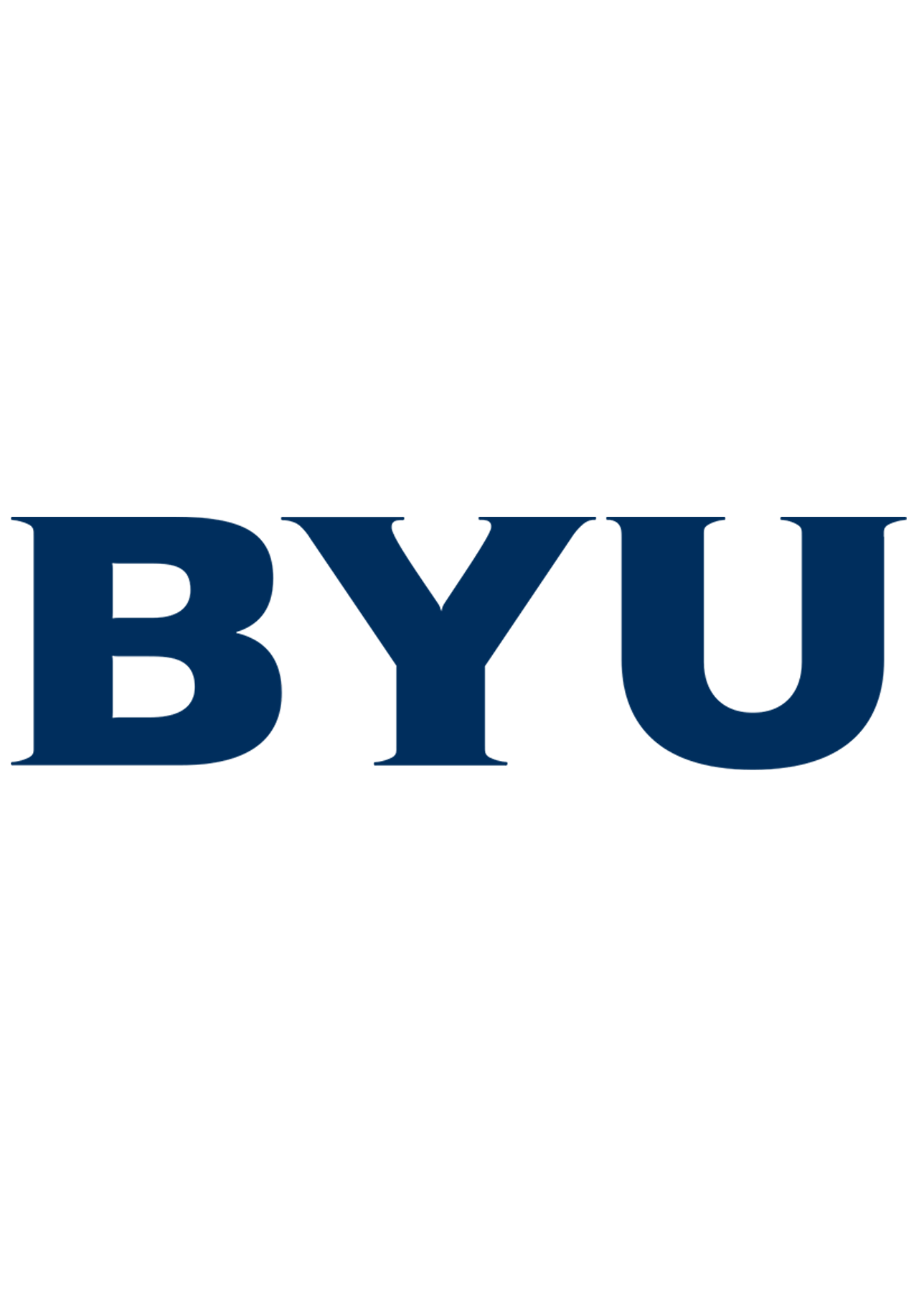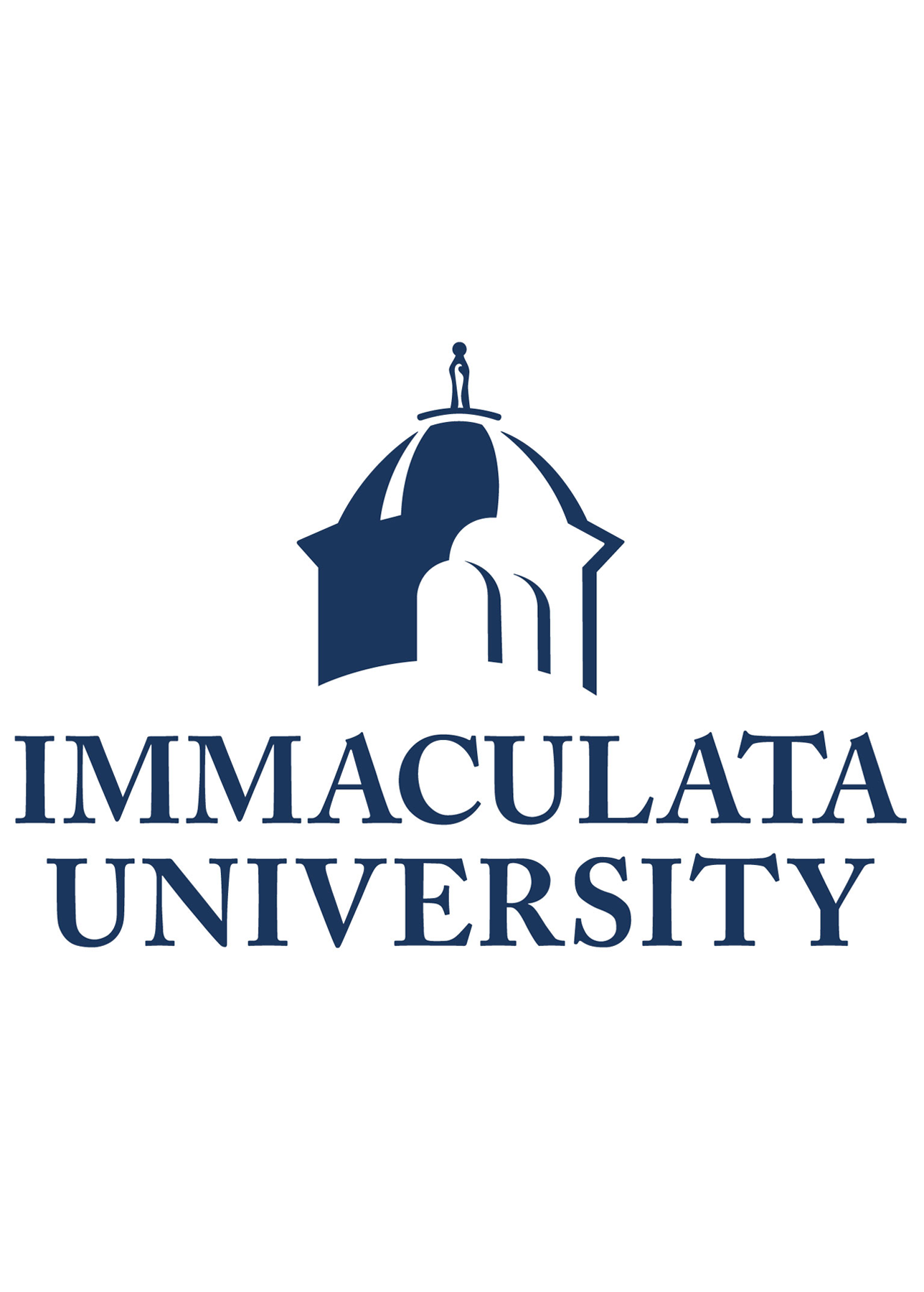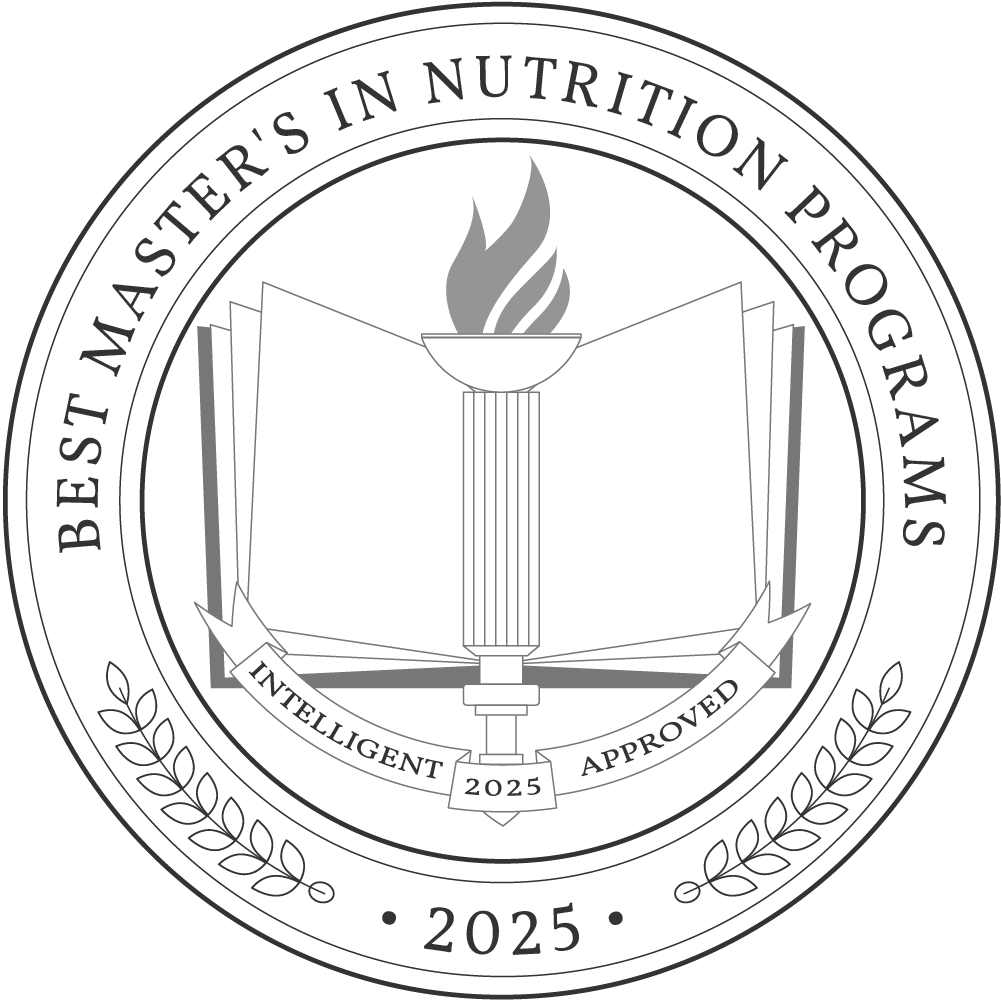Millions of individuals — from children to seniors — depend on precise nutritional care to manage medical conditions and improve their overall health. Professionals trained in nutrition are pivotal in their recovery and well-being, and a master’s in nutrition is the key to achieving these goals. These programs not only prepare you for careers as dietitians and nutritionists, where the median salary is $69,680, but can also help you secure higher earnings, with the top 10% of nutritionists earning over $98,830.
Completing this degree usually takes 18 months to two years, with an average tuition cost of $19,749. This investment in your education provides you with advanced knowledge and skills, positioning you to make a profound difference in the health sector of our economy.
Why Trust Us
The Intelligent.com Higher Education Team is dedicated to providing students with independent, equitable school and program rankings and well-researched resources. Our expert-driven articles cover topics related to online colleges and programs, paying for school, and career outlooks. We use data from the U.S. Department of Education’s College Scorecard, the National Center for Education Statistics, and other reputable educational and professional organizations. Our academic advisory team reviews content and verifies accuracy throughout the year for the most current information. Partnerships do not influence rankings or editorial decisions.
- Analyzed over 2,000 national, accredited, and nonprofit colleges and universities
- 800+ rankings pages are reviewed and updated yearly
- Content is informed by reputable sources, surveys, and interviews with academic advisors and other experts
- Over 100 data points are reviewed for accuracy and quality throughout the year, including sources
How we rank schools
Our list features the best Nutrition degree programs at top colleges nationwide. Each school featured is a nonprofit, accredited institution — either public or private — with a high standard of academic quality for post-secondary institutions.
We evaluated each school’s program on tuition costs, admission, retention and graduation rates, faculty, reputation, and the student resources provided for online students. We collected data from trusted sources like the National Center for Education Statistics, individual school and program websites, school admissions counselors, and other data sources. Then, we calculated the Intelligent Score on a scale of 0 to 100 based on the following criterion:
Academic Quality:
- Admission rate versus enrollment rate
- Retention rate of students who return after year one
- Accreditation status (regional and programmatic)
- Nonprofit status, both private and public institutions
Graduation Rate
- Overall graduation rate
- Total number of currently enrolled students, including diversity metrics
- Student-to-faculty ratio
Cost and ROI
- In-state and out-of-state per-credit tuition rates and fees
- Required credits to graduate
- Earning potential after graduation
- Availability of federal student loans, scholarships, and other financial aid options
Student Resources
- Available student services for online-only and hybrid programs
- On-campus amenities like tutoring centers and the number of libraries
Read more about our ranking methodology.
Best 47 Accredited Master’s in Nutrition Programs
FiltersInstitution Type
Status
- Intelligent Score
- Alphabetically By University Name
- Acceptance Rate
- Enrollment
- In-state Graduate Tuition
- Out-of-state Graduate Tuition
- In-state Undergraduate Tuition
- Out-of-state Undergraduate Tuition

Tufts University
Intelligent Score: 99.40In-state: $59,560
Out-of-state: $59,560
In-state: $54,196
Out-of-state: $54,196
SAT: 1380-1530
ACT: 32-35
$2,180
Hybrid
New England Commission of Higher Education
30

University of Illinois Urbana-Champaign
Intelligent Score: 98.02In-state: $14,317
Out-of-state: $33,824
In-state: $15,016
Out-of-state: $15,016
SAT: 1200-1460
ACT: 27-33
$1,148
On-Campus
Higher Learning Commission
32

Texas Woman's University
Intelligent Score: 97.72In-state: $94
Out-of-state: $77
In-state: $48
Out-of-state: $48
SAT: Considered (not required)
ACT: Required
Resident: $288
Non-Resident: $708
On-Campus, Online
Southern Association of Colleges and Schools Commission on Colleges
30

Case Western Reserve University
Intelligent Score: 97.59In-state: $52,448
Out-of-state: $52,448
In-state: $47,920
Out-of-state: $47,920
SAT: 1340-1520
ACT: 31-34
$2,248
On-Campus
Higher Learning Commission
30

University of Nebraska-Lincoln
Intelligent Score: 97.15In-state: $7,770
Out-of-state: $24,900
In-state: $6,138
Out-of-state: $6,138
SAT: 1110-1320
ACT: 22-28
Resident: $353
Non-Resident: $1,031
On-Campus, Online
Higher Learning Commission
30-36

University of North Carolina at Chapel Hill
Intelligent Score: 97.02In-state: $7,019
Out-of-state: $34,198
In-state: $10,552
Out-of-state: $10,552
SAT: 1280-1490
ACT: 28-33
Resident: $238
Non-Resident: $963
On-Campus
Southern Association of Colleges and Schools Commission on Colleges
30

Texas Tech University
Intelligent Score: 94.21In-state: $8,683
Out-of-state: $20,953
In-state: $6,788
Out-of-state: $6,788
SAT: 1070-1240
ACT: 22-27
Resident: $351
Non-Resident: $771
On-Campus, Online
Southern Association of Colleges and Schools Commission on Colleges
31

Texas A&M University
Intelligent Score: 92.96In-state: $8,395
Out-of-state: $36,849
In-state: $6,775
Out-of-state: $6,775
SAT: 1160-1380
ACT: 26-32
Resident: $818
Non-Resident: $1,349
On-Campus
Southern Association of Colleges and Schools Commission on Colleges
32-36

University of Michigan
Intelligent Score: 91.80In-state: $16,520
Out-of-state: $53,669
In-state: $24,344
Out-of-state: $24,344
SAT: 1340-1520
ACT: 31-34
Resident: $2,228
Non-Resident: $3,447
On-Campus
Higher Learning Commission
32-34

University of Washington
Intelligent Score: 91.45In-state: $10,629
Out-of-state: $37,998
In-state: $16,278
Out-of-state: $16,278
SAT: 1200-1453
ACT: 27-33
Resident: $927
Non-Resident: $1,605
On-Campus
Northwest Commission on Colleges and Universities
44

Mississippi State University
Intelligent Score: 90.73In-state: $8,800
Out-of-state: $23,840
In-state: $8,800
Out-of-state: $8,800
SAT: 1050-1270
ACT: 22-30
Resident: $537
Non-Resident: $1,469
On-Campus
Southern Association of Colleges and Schools Commission on Colleges
30

Rutgers University
Intelligent Score: 89.37In-state: $12,230
Out-of-state: $29,012
In-state: $17,736
Out-of-state: $17,736
SAT: 1180-1410
ACT: 25-32
Resident: $1,025
Non-Resident: $2,428
On-Campus
Middle States Commission on Higher Education
30

Brigham Young University-Provo
Intelligent Score: 89.06In-state: $5,970
Out-of-state: $5,970
In-state: $7,510
Out-of-state: $7,510
SAT: 1200-1410
ACT: 26-32
$480 - $960
On-Campus
Northwest Commission on Colleges and Universities
30-32

University of Wisconsin-Madison
Intelligent Score: 87.42In-state: $9,273
Out-of-state: $37,161
In-state: $10,728
Out-of-state: $10,728
SAT: 1260-1460
ACT: 27-32
Resident: $782
Non-Resident: $1,615
On-Campus
Higher Learning Commission
30

University of Kentucky
Intelligent Score: 86.69In-state: $11,135
Out-of-state: $29,945
In-state: $12,189
Out-of-state: $12,189
SAT: 1070-1280
ACT: 22-29
Resident: $1,592
Non-Resident: $3,940
On-Campus, Online
Southern Association of Colleges and Schools Commission on Colleges
33

Purdue University
Intelligent Score: 86.62In-state: $9,208
Out-of-state: $28,010
In-state: $9,208
Out-of-state: $9,208
SAT: 1170-1420
ACT: 25-33
Resident: $384
Non-Resident: $948
On-Campus
Higher Learning Commission
30

Immaculata University
Intelligent Score: 86.42In-state: $26,900
Out-of-state: $26,900
In-state: $12,780
Out-of-state: $12,780
SAT: 990-1170
ACT: 17-23
$710
Hybrid
Accreditation Council for Education in Nutrition and Dietetics
39

George Mason University
Intelligent Score: 85.71In-state: $9,510
Out-of-state: $32,970
In-state: $12,594
Out-of-state: $12,594
SAT: 1100-1300
ACT: 24-30
In-State: $629
Out-of-State: $1,543
On-Campus
Southern Association of Colleges and Schools Commission on Colleges
39-45
How to Choose a Master’s in Nutrition Program
Choose your area of study
While nutrition is already a relatively niche degree, you can further align your education with your career goals by choosing an area of study. Deciding this first, before you begin your research in full, will help you select a program that offers specialized courses and opportunities to succeed in your chosen field.
For instance, students wishing to focus on children’s dietary needs will thrive in pediatric nutrition. In contrast, those wanting to gear their studies towards optimizing athletic performance through dietary strategies may prefer sports nutrition. Students seeking policy-making and community health program roles will excel in public health nutrition. At the same time, those aiming to become registered dietitians may opt for the relatively straightforward specialization of dietetics.
Research schools and programs
With your chosen specialization in mind, you can begin researching schools and programs that align with your educational needs. Consider using the following questions to guide your research:
- What specializations are offered?
- What is the faculty’s experience in my area of interest?
- Does a recognized accrediting body accredit the program?
- What are the program’s prerequisites and requirements?
- How do current students and alumni rate their experiences?
Most programs make this information readily available on their website, but many students also benefit from speaking with an admissions counselor or attending an open house or information session.
Prepare for tests and applications
Starting early is critical when preparing for tests and applications — especially regarding your personal statement and studying for the GRE. Enrolling in a test prep program can significantly improve your scores, positioning you as a strong candidate. Additionally, you can ensure a smooth application process by requesting transcripts and letters of recommendation well in advance — avoiding any last-minute stress. As application components come in, organize them systematically so you can meet deadlines comfortably.
Select your program
Once acceptance letters arrive, revisit your initial research criteria, focusing on what’s most important — whether that be curriculum relevance, faculty you’re excited to learn from, or program reputation. Equally crucial is comparing the total cost of attendance with available financial aid options, such as scholarships, grants, and assistantships. This comparison will help you make a financially informed decision, ensuring that the program you ultimately attend aligns with your academic goals and economic means.
Determine how you’ll pay for your degree
Financing your degree without accruing substantial debt may feel impossible, but many financial aid resources are available to help.
Prioritize options like scholarships and grants, as these are essentially free money that doesn’t have to be repaid. Assistantships are also a good option, as they provide tuition remission and a stipend in exchange for research or teaching responsibilities. If you’re currently employed, ask your employer about tuition reimbursement programs — mainly if this degree is relevant to your current job.
However, remaining costs may exist even with all of these elements at play. Federal loans are worth considering, but be cautious and borrow only what is necessary to prevent a debt burden later on.
What Can You Expect From a Master’s in Nutrition Program?
By earning your master’s in nutrition, you’ll gain an in-depth education on food science and its effects on health, preparing for roles in public health, education, and wellness advocacy. Unlike dietetics programs, which are explicitly tailored toward preparing students to become registered dietitians with a focus on clinical practices and patient counseling, a nutrition degree often emphasizes broader topics like biochemistry, food technology, and nutritional epidemiology. As a student, you’ll learn how to assess dietary needs, develop nutritional programs, and understand the impacts of nutrition at both individual and community levels. Most programs offer elective courses for specialization in sports nutrition, pediatric nutrition, or public health.
These programs typically take 18 months to two years to complete with full-time study. Some institutions may require a thesis, which can extend the timeline, though non-thesis tracks are often available for those preferring a more practical approach.
Potential courses you’ll take in a master’s in nutrition program
- Advanced Nutritional Biochemistry: This course delves into the molecular foundations of human nutrition, examining how nutrients are metabolized and their physiological impacts. Students learn about the biochemical pathways relevant to macro and micronutrients and their roles in maintaining health and preventing disease.
- Nutritional Epidemiology: In this class, students explore the methods used to study dietary factors and their relationship with health outcomes at the population level. They learn to design, conduct, and analyze nutritional research studies using statistical tools to interpret epidemiological data.
- Pediatric and Maternal Nutrition: Considered an elective in most curriculums, this course examines the nutritional needs during pregnancy and childhood. Lessons cover topics like breastfeeding, weaning, and the dietary interventions required to support children’s optimal development and long-term health.
- Nutrition and Chronic Disease Management: This course addresses the role of nutrition in preventing and managing chronic diseases such as diabetes, heart disease, and cancer. Students learn about dietary guidelines, meal planning, and therapeutic diets that can mitigate the security of chronic conditions and improve patient outcomes.
Master’s in Nutrition Degree Frequently Asked Questions
How do I apply to a master's in nutrition degree program?
To apply for these programs, you must meet common criteria, although specific requirements can vary by institution. These may include:
- A bachelor’s degree, with many programs preferring a related field such as biology, chemistry, or dietetics
- Official transcripts from all previously attended institutions
- Two or three letters of recommendation from academic or professional references
- A detailed statement of purpose outlining your career objectives
It’s crucial to consult with an admissions counselor to ensure you meet all specific requirements before submitting your application. They can also help you tailor your application to your chosen program, potentially presenting yourself as a stronger candidate.
How much does a master's in nutrition degree cost?
The cost of these degrees varies widely, with the average graduate tuition reported at $19,749 for the 2020-2021 academic year. Beyond tuition, you’ll also want to budget for housing, commuting expenses, textbooks, and course materials — which can add up over time and significantly impact the overall cost of attendance. By calculating these expenses ahead of time, you’ll get a more comprehensive picture of the total financial commitment required for each school you’re interested in.
How long does it take to earn a master's in nutrition degree?
Achieving this degree takes 18 months to two years for full-time students, depending on the program’s credit requirements, which can vary significantly. Part-time students may take longer, often around three to four years, as they balance coursework with other commitments — like a full-time job or raising a family.
To calculate your timeline to graduation, carefully review the total number of credits required by each program. This figure will directly influence your completion timeline. Generally speaking, programs that require more credits will take longer to complete.

